MR AWARDS 2022 LIFETIME ACHIEVEMENT: JL SHAIA, SHAIA’S
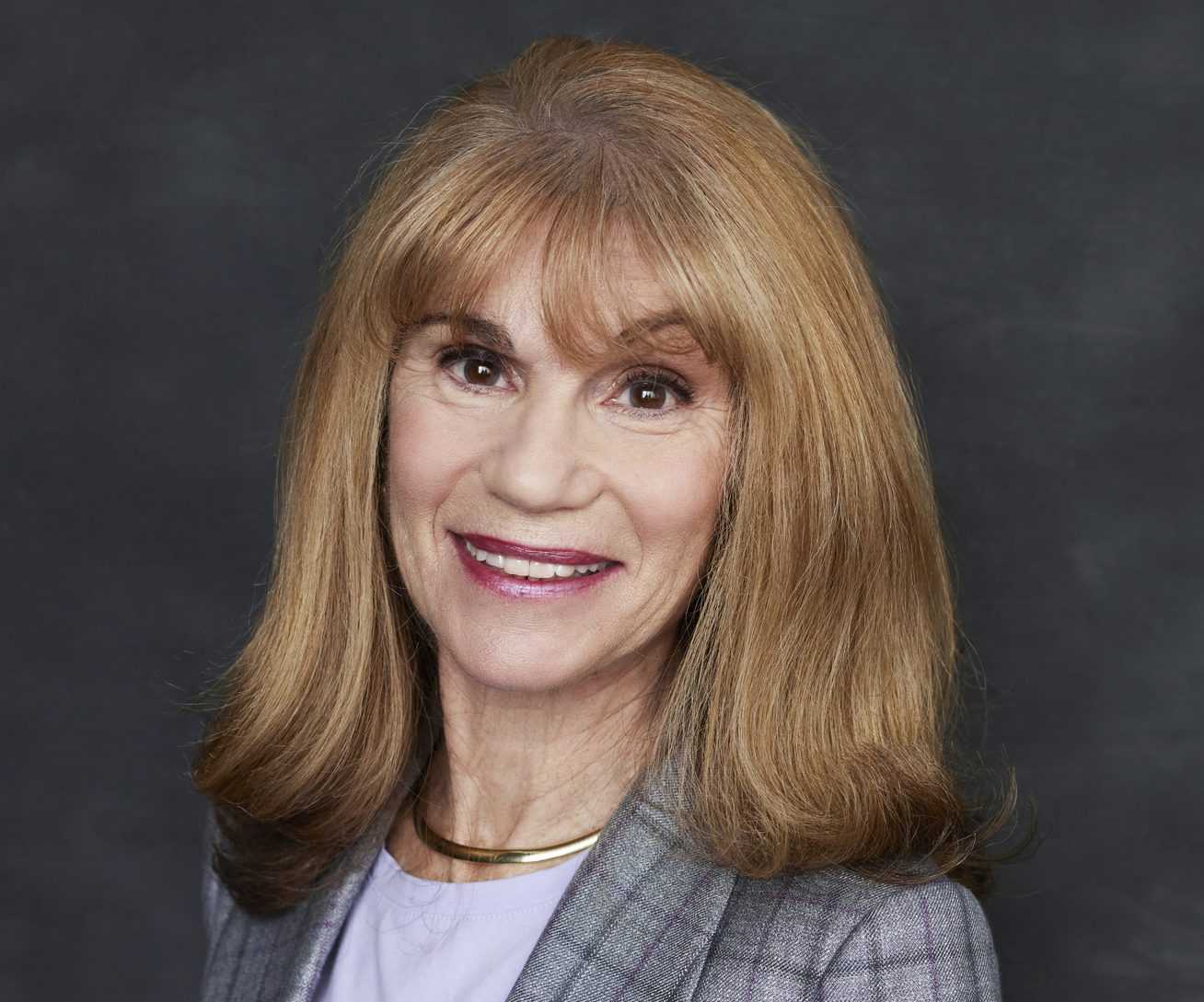
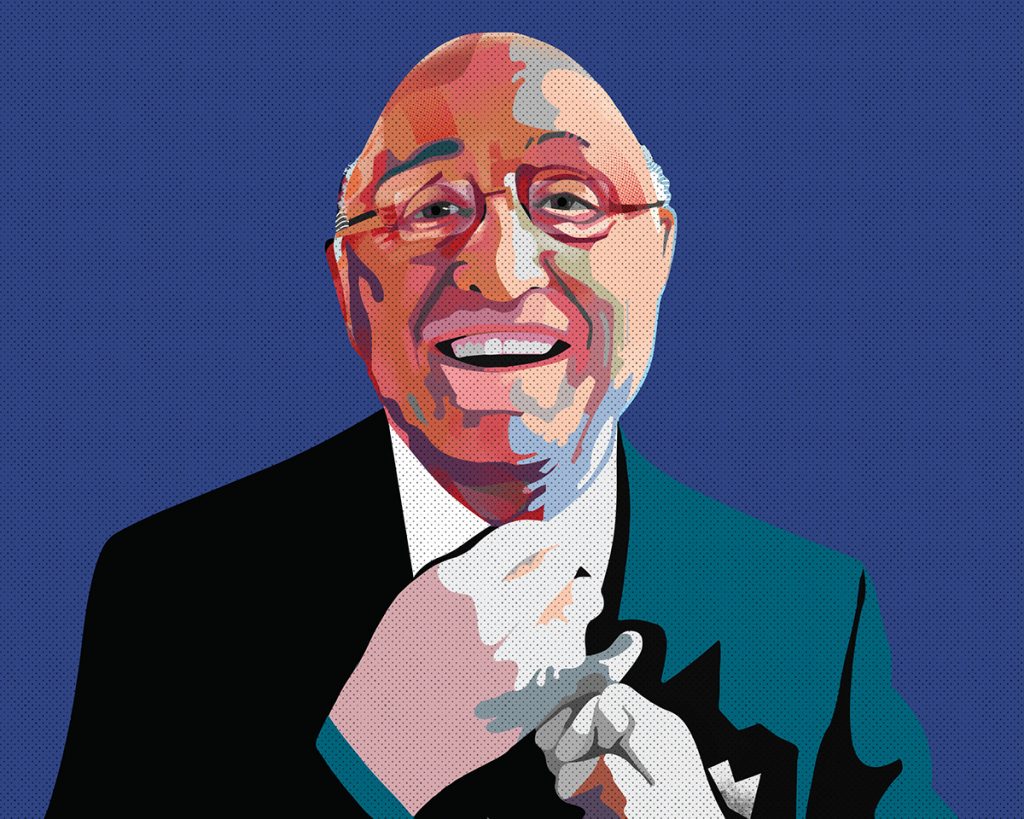
JL Shaia, recipient of MR’s 2022 Lifetime Achievement Award, never doubted he’d enter the family business. The store was founded in 1922 by his grandfather, SG Shaia, who in 1905 at age 16, immigrated to America from Lebanon with $10 in his pocket. SG started out as a peddler with a 100-pound pack on his back, traveling by foot, streetcar, and wagon to hawk his wares. Ultimately settling near Birmingham, Alabama, he married, purchased property, built a home and store on his land, and nurtured a garden of figs and grapevines. Still the symbolic heart of the business, a grapevine now forms the handle on the store’s front door, providing a warm welcome to all who enter. Eventually, JL’s dad AJ took over the business, then JL and his brother Leo, and now JL’s son Ken. Here, we talk to JL about the store’s evolution, and to Ken about confronting new challenges.
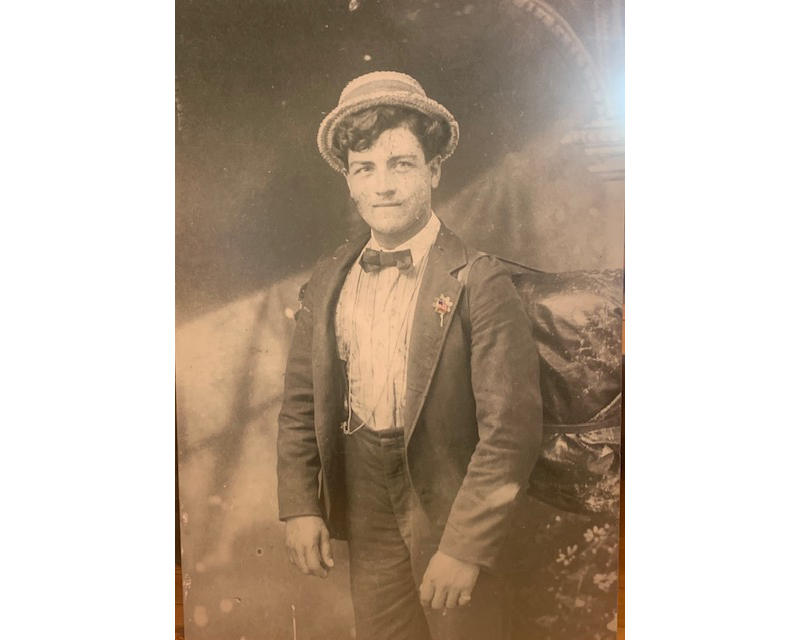
What are some of your earliest memories of working in the store?
JL: In the mid-1940s, prior to air conditioning, I was about 10 years old and my job was to raise and lower the awnings to prevent sun fade. At closing, I had to cover the tables of merchandise and hang covers on the bottom half of the windows. I remember sweeping the wooden floors with an oil-treated mop. Before AC, we had a water-cooled unit that caused all kinds of problems due to the moisture it created. I remember big commercial fans at the back of the store.
What were you selling at the time?
JL: We carried brands like Puritan sweaters, Pioneer belts, Esquire socks, Wembley ties, Swank jewelry, Welden pajamas, Jockey underwear. In 1964, we converted to an all-men’s store but, because there were several well-established men’s stores in Birmingham already carrying the top brands, we had to find lesser known but similar quality labels: Sero, Eagle, and Creighton shirts (because we couldn’t get Gant). We had a trouser brand called Jefferson because we couldn’t get Corbin. We also carried McGeorge sweaters, Deansgate Clothing, Hertling, Freedberg of Boston, Southwick and Borenstein. Eventually we were able to prove our worth and got the big names like Robert Talbott and Norman Hilton. In the early ’70s, we were offered Polo, and had it exclusively in our market for about five years. During that time, we added Alexander Julian, who made regular appearances at our store. Those two brands put us on the map in our trading area. We ultimately added Zegna in the early ’80s (we’ve been a Zegna account for 40 years) and then Hugo Boss and Armani, which we ultimately dropped….
In addition to these brands, we knew we had to find a fashion niche that was not covered by other men’s stores in Birmingham. At the time, the city was ultra-conservative in its dress code: all suits were three-button and most dress shirts were button-down collars. We believed very strongly in traditional two-button clothing and the accessories that went with that look. We decided we were going to be the Paul Stuart of Birmingham. It was an uphill battle, but we stayed the course, finding a customer base that believed in us. That base grew and the rest is history.
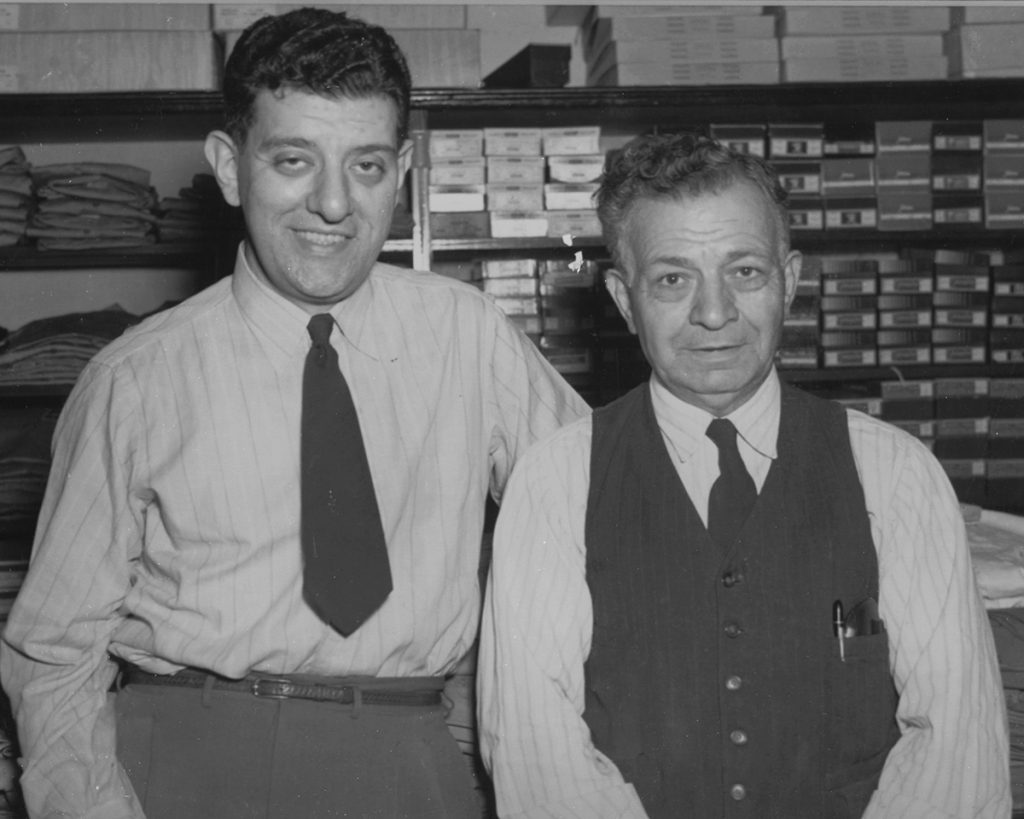
Who were your mentors along the way?
JL: Certainly, my father: I greatly admired his dedication and work ethic. I always had tremendous respect for Murray Pearlstein from Louis Boston: I’d go there just to walk around that store for inspiration; I eventually had dinner with him thanks to tie designer Audrey Buckner. DNR editor Clara Hancox was certainly a mentor and great friend. She’d call me to share thoughts on business or recommend a new line she thought would be right for the store. Several times at New York market (at the old Designer Collective), she’d literally take me by the hand and pull me over to a particular vendor’s booth.
Ken, was it difficult having two generations running one business?
Ken: We somehow made it work, even though my father’s management style and mine are as far apart as East is to West. My father is a planner, an organizer; I’m spontaneous and nonconforming.
The greatest lesson I’ve learned from my dad is to create value for the people you work with, that doing this will pay dividends. To quote John C. Maxwell: “A successful person finds the right place for himself, but a successful leader finds the right place for others.” My dad models this philosophy for me every day. I’m trying to master it but I’m not there yet.
JL, how involved are you in the business now?
JL: Several years ago, I began to reduce my time at the store, maybe working three days a week. But when Covid hit (March 2020), Ken suggested because of my age and asthma that I needed to stay away until the pandemic got less severe. Then we were closed for two months and that was the beginning of the end for me. I was 85 at the time and had already put in 65 years…
So now I just stop by on occasion to say hello or to visit with a friend. I might do a little paperwork in the office but I’m not on the sales floor. I don’t miss the work, but I do miss my customers and my vendors.
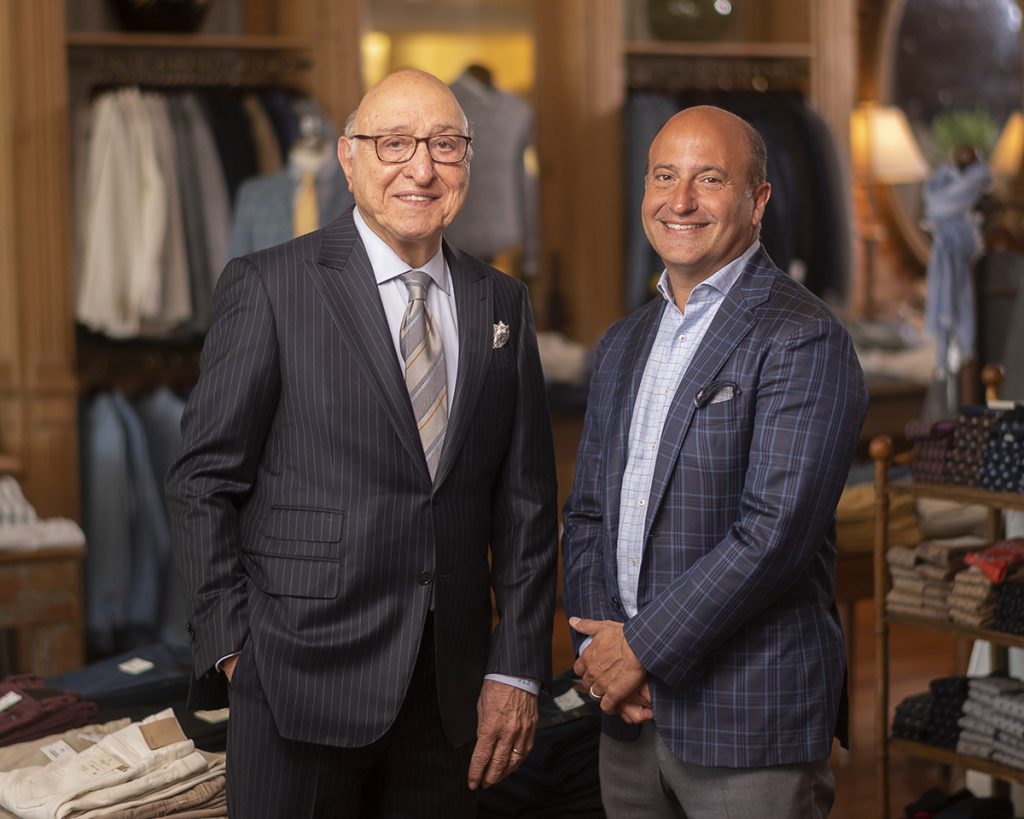
So how is Ken doing? Do you give him advice? Does he take it?
JL: Ken’s doing great: I tell everyone he’s the best Shaia merchant yet. I don’t really give him advice: he began going to market with me full-time when he was 24; he’s now 55 so he’s picked up a few tips along the way…
We’re lucky that Ken is the total package: excellent in the market, great taste and vision, confident leadership of the strong team he’s put together. He single-handedly guided the store through the pandemic and as it turned out, 2021 was a record-breaking year for us.
But what’s best about Ken is his ability to think outside the box. For example, when we were finally allowed to reopen in May 2020, we were down two employees. So Ken was faced with opening the store with less help. But how do you properly take care of customers without giving your employees a well-deserved day off? Ken decided that rather than staggering days off and accepting a shortage of sellers, he’d close the store on Mondays to give everyone the same day off. He believed that whenever our doors are open, our staff needs to be rested and ready to provide the exceptional service our customers expect. This proved to be such a good move that we now close on Mondays as part of our regular routine.
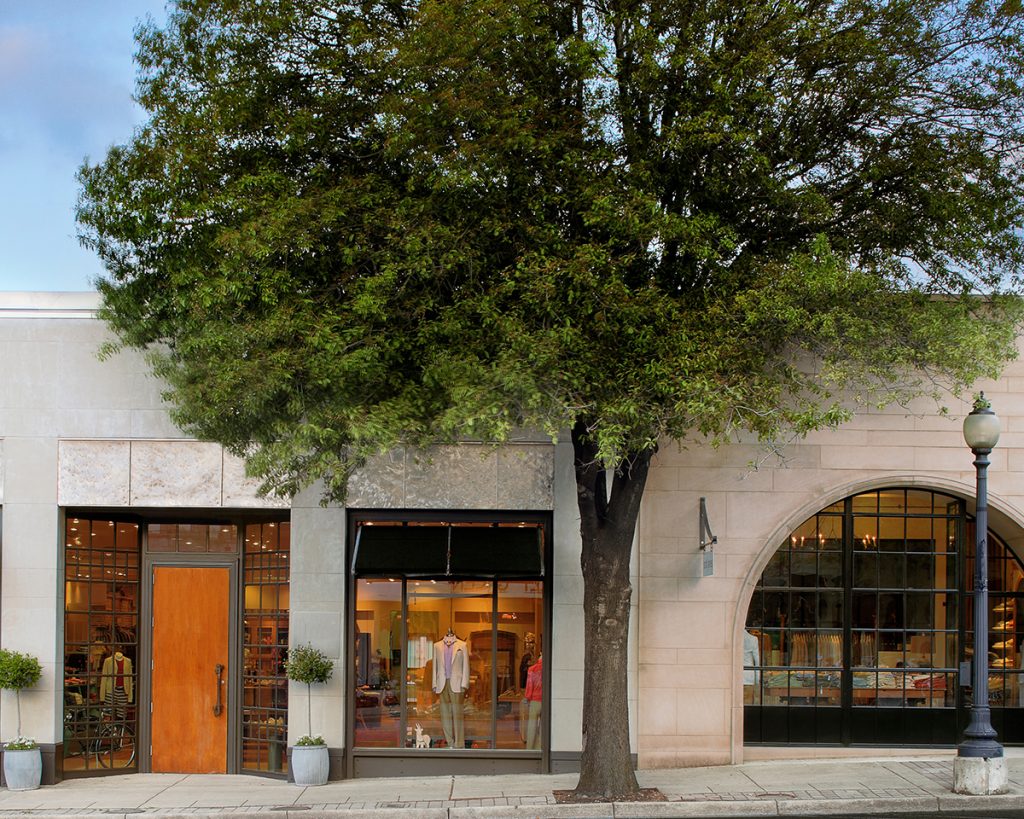
Ken, how has business changed since the pandemic?
Ken: When the pandemic hit, we decided to focus on what we could control. With the dollar and the euro nearly one to one, we kept our assortments 80% European. With the government printing money, we knew inflation was coming and planned accordingly. We’d been through the 1980s and learned that carrying over fresh fashion can be an asset. But our greatest asset is owning our building on property purchased by my great grandfather. So with minimal cash flow problems, we decided to invest in inventory and people. When the governor shut us down for a month, we sent our employees home with four weeks PTO. My dad and I agreed to take no salary until we were back on our feet.
So are you back on your feet?
Ken: As my dad said, 2021 was our best year ever. Although I used to hate the word “team,” the pandemic taught us the value of working together. Our sales associates, like most sellers, tended to be competitive but during the pandemic, we began to work in a circle, each of us bringing our own unique strengths to each sale. This team approach contributed to our success last year and in the process, elevated the experience for our customers. We observed that by working with more people (maybe one associate would bring a drink, another would deal with the alteration, another would show something new that just came in), the customer feels truly special. As Chris Rock has put it, “Husbands and wives should quit being competitive: two people can move a couch better than one.”
What’s your take on evolving dress codes? Will we ever go back to mandated suits and ties in the office?
Ken: I don’t think suits are going away; in fact, with wedding, proms and other special events coming back post-pandemic, suits have been on an upward trajectory. Remember that historically, tailored clothing evolved from church-inspired prayer garments and military uniforms. So I believe suits will remain relevant as long as church and state are relevant. When I first heard that several city stores were looted during the pandemic, but the looters didn’t steal tailored clothing, it gave me hope… Tailored clothing has always been a hallmark of successful serious men. The modern suit has survived the pandemic and will continue to represent success.
What are key ‘must-have’ items for fall ’22?
Ken: The industry would tell you it’s the chore jacket, but I’m not sure our customers will come running into the store for luxury-priced chore jackets. (I’ve yet to hear a man say he needs new clothes to do chores…)
When a customer walks into our store, we engage him in conversation to discover his needs and dress him as an individual. A man needs a balanced wardrobe of up-to-date tailored clothing and sportswear. He needs clothes that are modern but not extreme. We show our customer how dressing in a relevant manner automatically makes him look 10 years younger.
That said, what are you doing to get younger guys into the store?
Ken: We carry a mix of traditional and contemporary brands. And thankfully, my Dad and Uncle pioneered a tradition of customers shopping with their sons and grandsons. Not to say that kids want to shop where their father and grandfathers do, but they know they can count on us to get it right. This has helped us gain their trust and create loyalty.
JL, what have you learned from your years in the business?
JL: I’ve learned that creating a men’s apparel store takes passion, dedication, and hard work. It’s a lot to give but the rewards are truly gratifying, not just financially but in personal pride and satisfaction. And along the way, you develop friendships that last a lifetime, with fellow merchants, with vendors, and with customers.
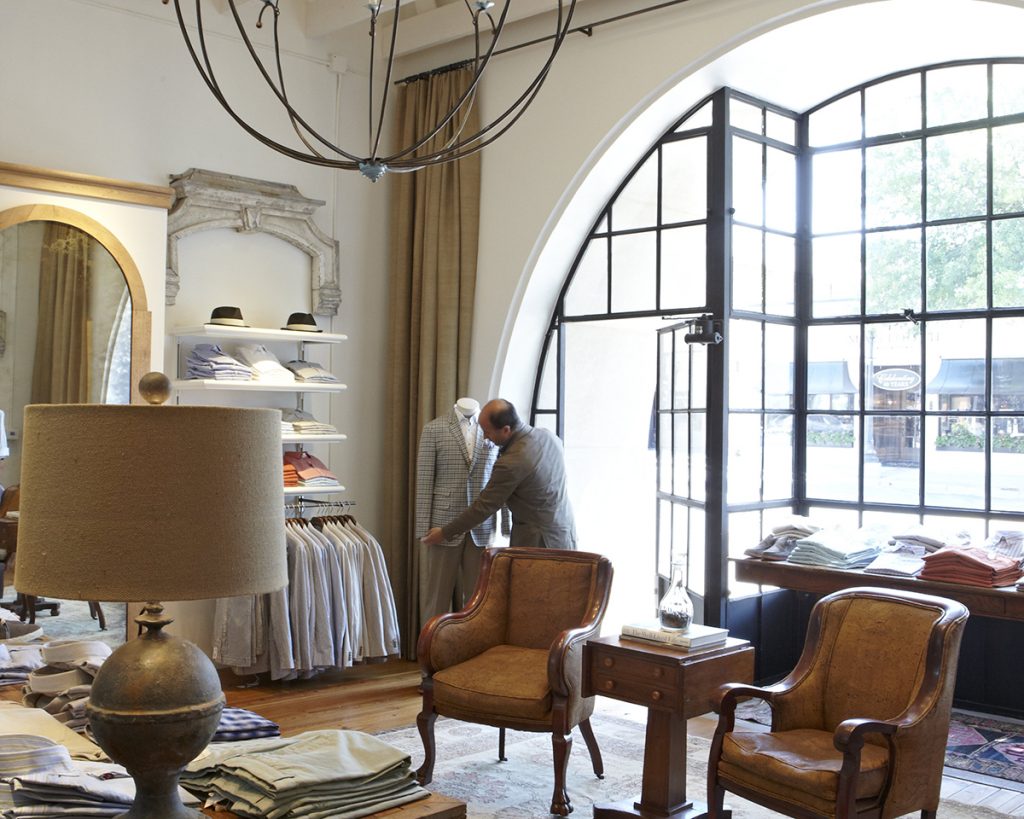
What would you do differently if you could start again?
JL: I can’t think of a thing. My cup runneth over.
Ken, what are your business plans for the next five years?
Ken: We’ll continue to stay in tune with the needs of our customers. Our focus is and has always been the selling floor: engaging with customers and discovering their needs.
We’ve been doing this for 100 years and I’ve learned that change is the only constant. People love newness: this is what excites them and why I’m looking forward to getting back to Pitti Uomo to discover a variety of fresh looks. I loved it when our leading brands each had individ- ual points of view; now, with everyone playing it safe, there’s a lot of sameness. The fact that many family businesses have become public companies means that profit often trumps creativity.
Other than family, who have been your mentors and what have you learned from them?
Ken: There are so many, but to name just a few: Glenn Taylor and Dick Pattison from Taylor Richards, George Bass, Butch Blum, David Fleisher from Pitkin Dry Goods, Kenny Gushner from Boyds, Shayne Regan, Scott Kuhlman, Steve Ramenofsky and Johnny Braeger from Garys. I’ve learned so much from these talented merchants who are always willing to share their wisdom. In fact, the real beauty of our menswear industry is caring people willing to share what they’ve learned to help each other out. I believe that banding together is more important now than ever: if the independent retailers don’t survive, the whole world will be shopping online.
The MR Awards is the largest and most prestigious event on the better menswear calendar, attended by the industry’s leading retailers, brands, and menswear insiders. In addition to new honorees, more than 50 Lifetime Achievement and Hall of Fame members are invited to return each year. The awards will be held at the Edison Ballroom on Sunday, July 17th, 2022, during New York menswear market week.
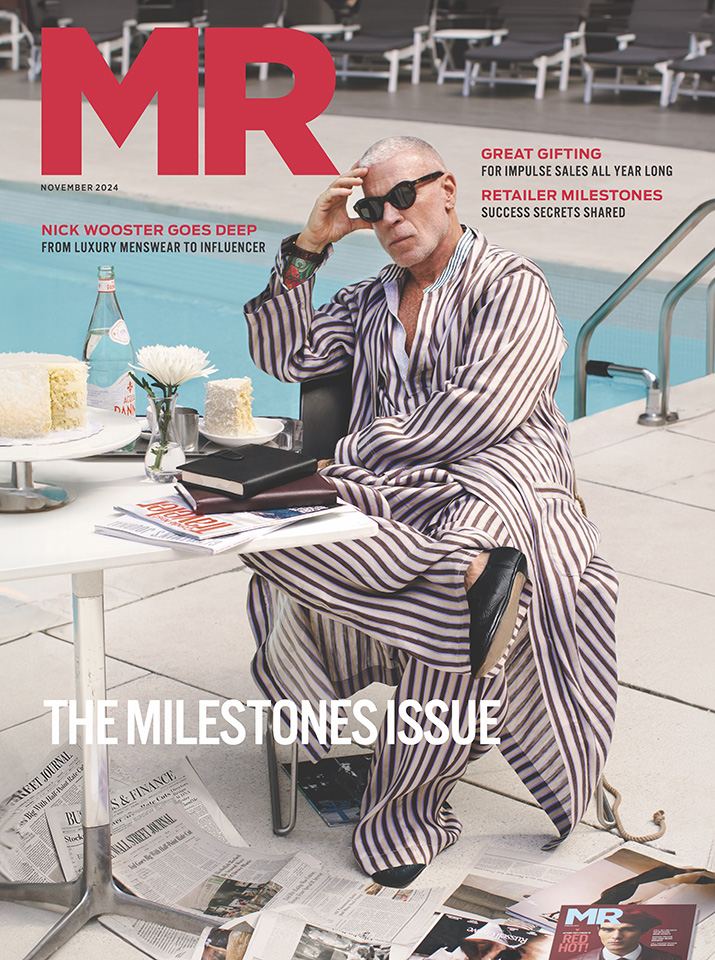



Congratulations J.L. on this well deserved award. What an awesome store and proud distinguished history. My days as a Parisian buyer I always loved coming into Shaia’s and appreciate all the good looking merchandise and friendly service.
Best Wishes,
Robert Loeb
Congratulations JL for your well deserved Award. Your Family dedication and respect for your customers, partners and associates has been a great example for myself and our industry .
🍾🥂